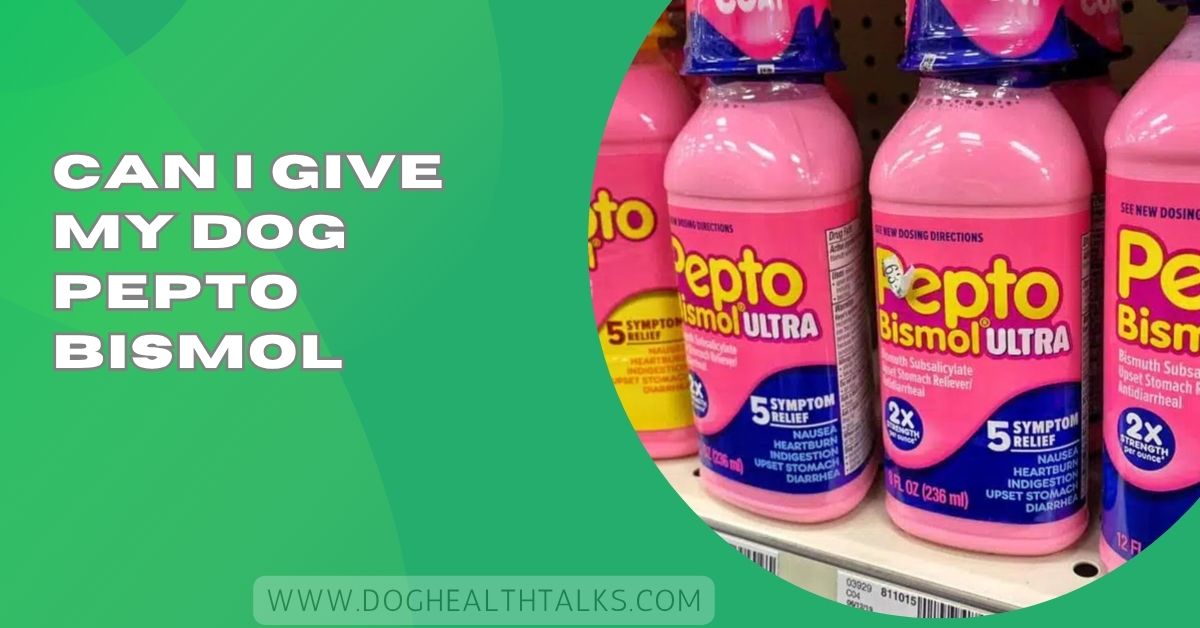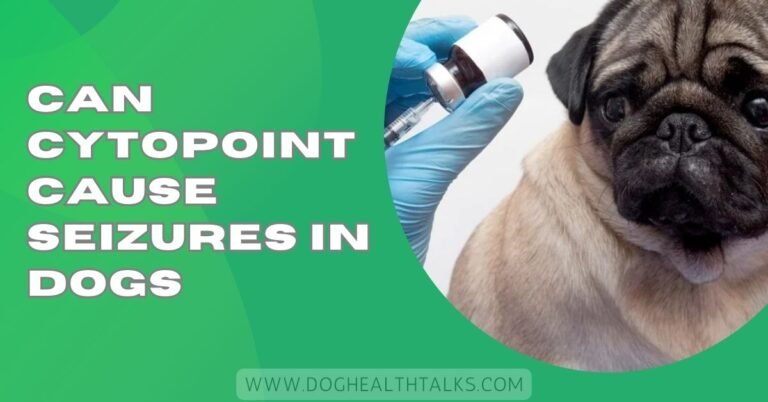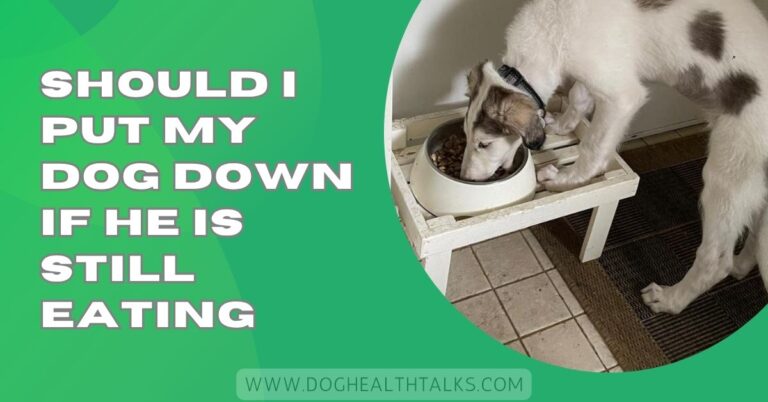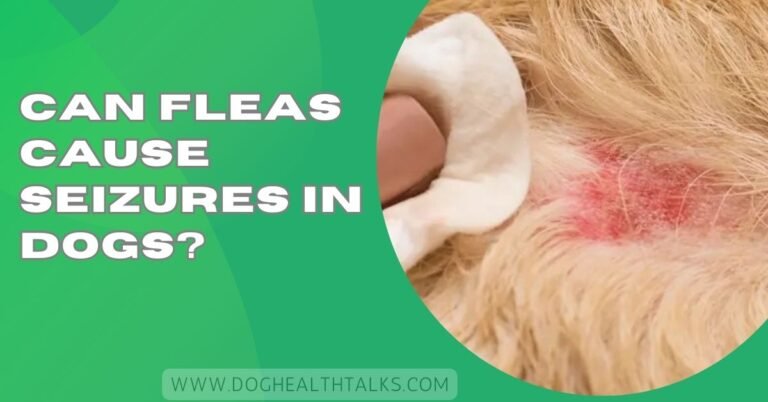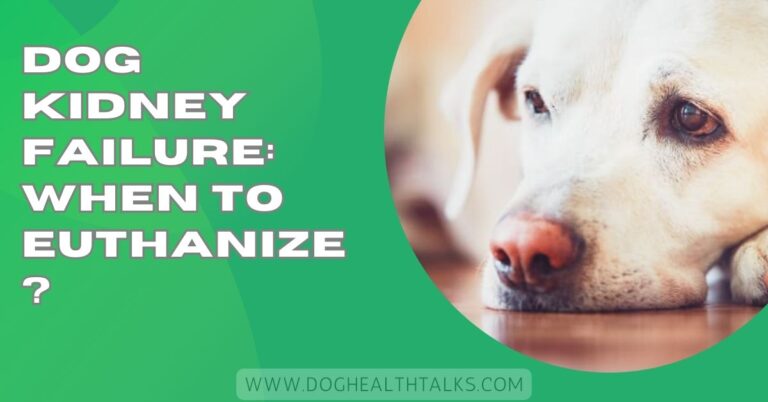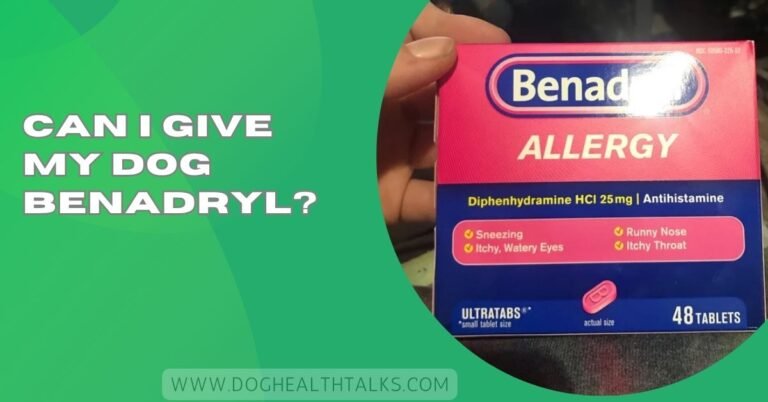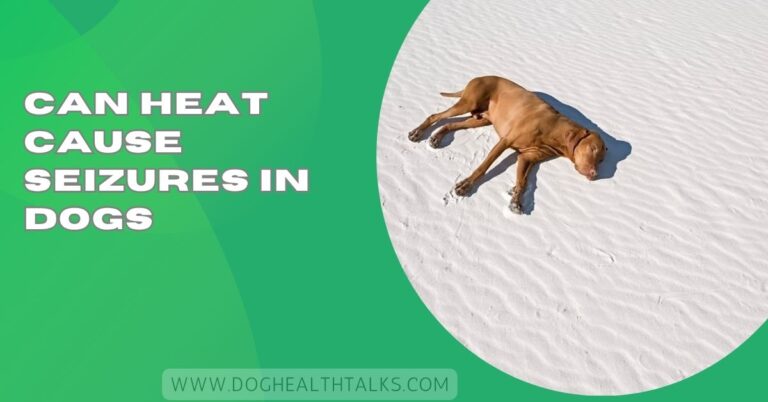Can I Give My Dog Pepto Bismol – Vet-Approved Guide!
If your dog is dealing with an upset stomach, diarrhea, or a rumbling tummy, you might reach into your medicine cabinet and grab that familiar pink bottle of Pepto Bismol.
Pepto Bismol can be given to dogs in moderation and only under a veterinarian’s guidance. While it’s generally safe for mild stomach issues, misuse or overdose can be harmful due to its bismuth subsalicylate content.
In this guide, we’ll explain when it’s safe to use, what the right dosage is, and which risks you should know before giving Pepto Bismol to your pup.
What Is Pepto Bismol and How Does It Work?
Pepto Bismol is a popular over-the-counter medication that soothes stomach discomfort, nausea, and diarrhea in humans.
Its main ingredient, bismuth subsalicylate, works by coating the stomach lining and reducing inflammation in the digestive tract.
In dogs, it can have similar effects, but their digestive systems are more sensitive than those of humans. That means what helps humans might harm a dog if given incorrectly.
Can I Give My Dog Pepto Bismol? (Quick Answer)
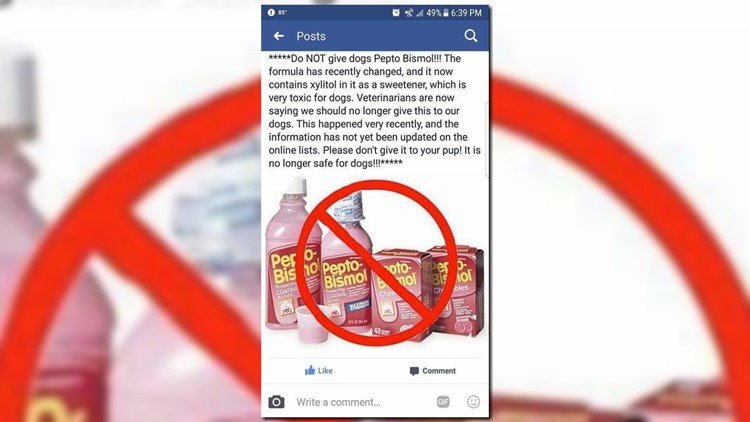
The short answer: sometimes, but only with your vet’s approval. Pepto Bismol isn’t FDA-approved for dogs, and though veterinarians may use it “off-label,” it carries risks—especially if your dog has underlying health issues or is taking other medications.
Some veterinarians prescribe small doses for mild diarrhea, while others prefer safer alternatives specifically designed for dogs. Always consult your veterinarian before attempting to treat your pet on your own.
Also Read: How Do You Know If Your Dog Has Parvo: Key Signs to Notice!
When Pepto Bismol May Be Appropriate for Dogs
Pepto Bismol might be safe for healthy adult dogs experiencing mild, short-term digestive upset, like a day of loose stool from a diet change or eating something unusual. It should only be used under vet supervision and for a very short time (usually no more than 24–48 hours).
Puppies, pregnant dogs, or dogs with chronic illnesses should never be given Pepto Bismol without medical advice. If the problem persists, it’s best to have your veterinarian rule out infections, parasites, or other potential causes.
Pepto Bismol Dosage for Dogs
When your vet gives the go-ahead, they’ll likely recommend a dosage based on your dog’s weight. The general guideline is 1 teaspoon (5 ml) per 10 pounds of body weight, every 6–8 hours.
It’s crucial to use the original strength liquid—not the “Ultra” version, which is more concentrated. Never give chewable tablets unless your vet specifically advises it, since the dosage is harder to control.
Here’s a quick example:
- 10 lbs dog → 1 teaspoon
- 20 lbs dog → 2 teaspoons
- 30 lbs dog → 3 teaspoons
Always measure carefully and use an oral syringe for accuracy. If your dog refuses to take it, don’t force it. If the symptoms persist for a day or two, stop the medication and contact your veterinarian.
Risks, Side Effects, and Safety Warnings
Even though Pepto Bismol sounds harmless, it can cause side effects in dogs. The most common one is black or dark green stool, which can be alarming but usually harmless. However, that dark color can hide signs of internal bleeding, which makes diagnosing other conditions more difficult.
More serious side effects include vomiting, constipation, or ulcers if too much is given. Because Pepto Bismol contains a salicylate (similar to aspirin), it can cause bleeding problems or stomach irritation—especially in dogs already taking medications like carprofen, meloxicam, or prednisone. In severe cases, it can lead to toxicity.
Avoid giving Pepto Bismol to:
- Puppies under 12 weeks
- Pregnant or nursing dogs
- Dogs with bleeding disorders
- Dogs with liver or kidney issues
- Dogs on anti-inflammatory or steroid medications
If your dog vomits repeatedly, appears lethargic, or exhibits black, tar-like stool, stop immediately and contact your veterinarian.
When NOT to Give Pepto Bismol to Your Dog
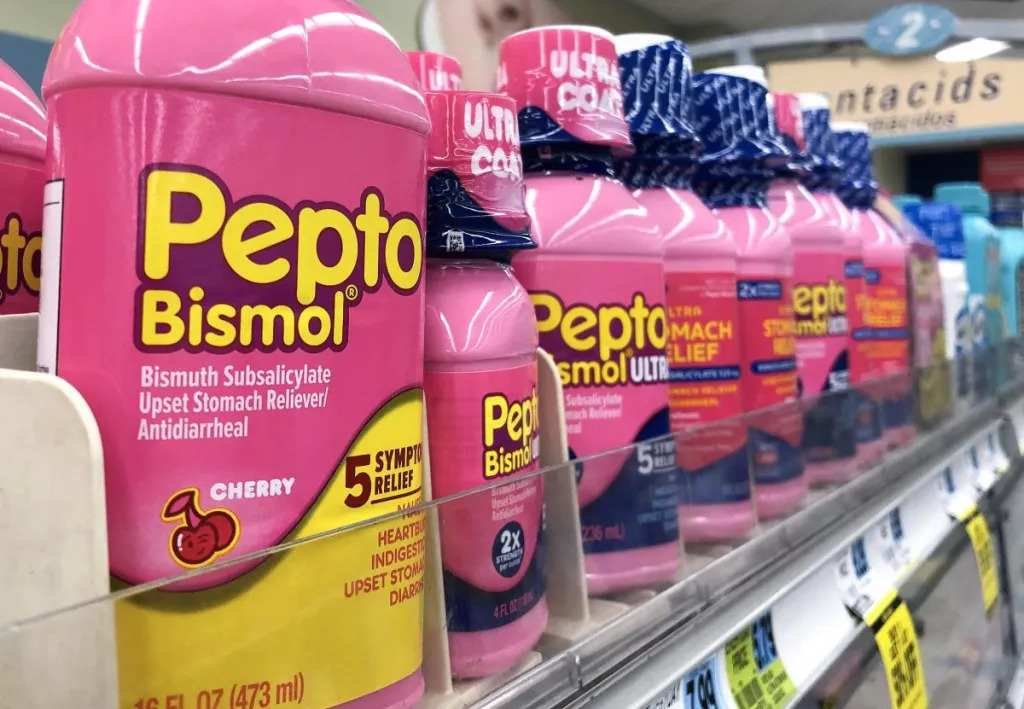
Sometimes, diarrhea or vomiting can be a symptom of something more serious, such as an infection, toxin exposure, or an internal issue that requires medical attention. Never give Pepto Bismol if your dog shows any of the following:
- Diarrhea lasting more than 24–48 hours
- Blood in vomit or stool
- Severe dehydration or lethargy
- Loss of appetite for more than a day
- Ongoing medication for pain or inflammation
In these cases, the pink liquid can exacerbate the condition or delay proper treatment. Always treat the cause, not just the symptom.
Must Read: Should I Put My Dog Down If He Is Still Eating – Top Signs!
Safer Alternatives to Pepto Bismol for Dogs
Fortunately, there are gentler, dog-safe ways to help your pup’s upset stomach. Try these options first, or ask your vet which is best:
- Bland diet: Feed small portions of boiled chicken and plain white rice for a day or two.
- Pumpkin puree: A spoonful of 100% plain canned pumpkin (not pie filling) can help regulate digestion.
- Probiotics: Dog-specific probiotics help restore gut balance after mild stomach upset.
- Hydration: Keep plenty of fresh water available to prevent dehydration.
- Prescription medications: Your vet may recommend medications like metronidazole or kaolin-pectin, which are specifically formulated for dogs.
These options are often more effective—and much safer—than giving human medication.
Step-by-Step: What to Do If Your Dog Has an Upset Stomach
- Pause treats and table scraps. Too many rich foods can irritate your dog’s stomach.
- Offer fresh water. Dehydration happens quickly when dogs vomit or have diarrhea.
- Feed a bland diet. Boiled chicken and rice in small amounts can settle the stomach.
- Watch for changes. If your dog shows improvement within 24 hours, great; if not, please call your veterinarian.
- Use Pepto Bismol only under vet direction. Never guess the dosage or duration.
Sometimes, a calm environment and a simple meal plan are all that’s needed for your pup to feel better.
Is Pepto-Bismol Safe For Dogs?
Pepto-Bismol can be safe for dogs only under a vet’s advice. It may help with mild stomach upset or diarrhea, but giving the wrong amount or using it without guidance can cause serious side effects or stomach problems.
Can I Give My Dog Pepto Bismol for Diarrhea?
You can give Pepto-Bismol to your dog for mild diarrhea if your vet approves. It helps soothe the stomach and slow loose stools. Always follow your vet’s dosage instructions and stop use if symptoms don’t improve quickly.
Pepto Bismol Tablet Dosage for Dogs by Weight
The general guideline is one 262 mg tablet for every 10 pounds of body weight, every 6–8 hours. Always consult your veterinarian before giving tablets, as they can be more challenging to dose safely for small dogs.
What Can You Give a Dog for Diarrhea?
For mild diarrhea, feed your dog a bland diet of boiled chicken and rice, keep them hydrated, and avoid treats. You can also use plain pumpkin or dog-safe probiotics. Contact your veterinarian if symptoms persist for longer than a day.
Can I Give My Dog Pepto Bismol for Vomiting?
Pepto-Bismol may help with mild nausea, but it’s not always safe for vomiting dogs. If your dog continues to vomit or appears weak, consult your veterinarian first. Vomiting could mean something serious that needs professional treatment.
How Much Pepto Can I Give My Dog for Diarrhea?
The recommended dose is one teaspoon (5 mL) of the original liquid Pepto-Bismol for every 10 pounds of body weight, administered every 6–8 hours. Only give it if your vet approves, and never use the stronger “Ultra” version.
How Often Can I Give My Dog Pepto Bismol?
You can give Pepto-Bismol every 6–8 hours, but only for one or two days. If your dog’s diarrhea or stomach upset doesn’t improve, stop giving it and contact your veterinarian for safer, long-term solutions.
Read Out: Can I Give My Dog Ibuprofen – Vets Reveal the Answer (2025)
Can Pepto Bismol Kill a Dog?
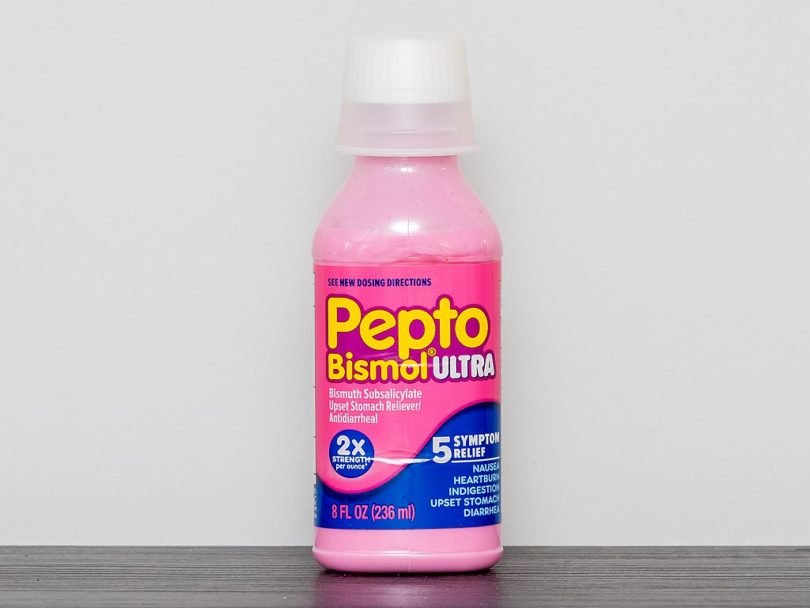
In large doses or without vet supervision, Pepto-Bismol can be dangerous and even deadly. The salicylate in it can cause stomach bleeding or toxicity. Always use the correct dosage and never give it without professional advice.
Can I Give My Dog Pepto Bismol at Home?
You can give Pepto-Bismol at home for mild stomach issues—but only if your vet says it’s safe. Use the correct amount and watch for side effects. If your dog’s condition worsens, stop immediately and call your veterinarian.
FAQs
How much Pepto-Bismol should you give a dog?
Give one teaspoon per 10 pounds every 6–8 hours, but only with your vet’s approval.
What medicine can you give a dog for an upset stomach?
Use veterinarian-approved medicines, such as metronidazole or probiotics. Avoid human drugs unless your veterinarian recommends them.
What can I give my dog instead of Pepto-Bismol?
Offer plain pumpkin, boiled chicken with rice, or probiotics to calm your dog’s stomach naturally and safely.
Is Pepto-Bismol good for dogs with diarrhea?
It can help mild diarrhea, but only if your vet approves. Always follow the correct dosage carefully.
How do I ease my dog’s upset stomach?
Feed a bland diet, offer water, avoid treats, and let your dog rest for 24 hours.
Can a dog’s upset stomach resolve itself?
Yes, mild stomach issues often resolve within a day with rest, hydration, and a light, bland diet.
Can you give dogs Tums?
Tums are usually safe in small doses, but it’s always best to consult your veterinarian before giving them to your dog.
Conclusion
Pepto-Bismol can sometimes help dogs with mild stomach issues, but it should only be given under a veterinarian’s supervision. While it may ease temporary diarrhea or nausea, incorrect dosing can lead to serious health problems. Always talk to your vet before offering any human medication to your dog. In many cases, simple remedies like a bland diet, pumpkin, or probiotics work just as well—and are much safer. Your vet can guide you to the best and safest treatment for your pup’s tummy troubles.
